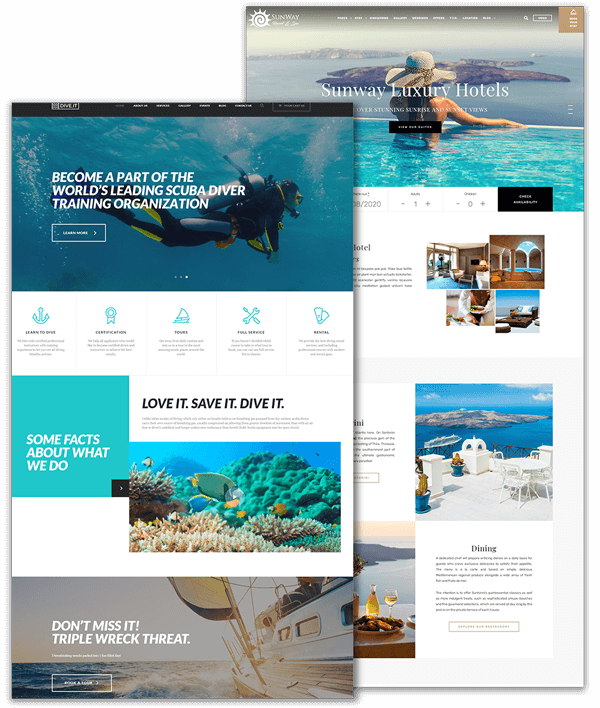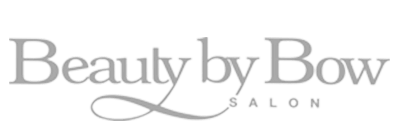
PHUKET DIGITAL MARKETING
With an effective website as the foundation, digital marketing offers exceptional value for money.
Digital marketing encompasses a wide range of strategies, including Search Engine Marketing (SEM), Pay-Per-Click (PPC), Search Engine Optimization (SEO), email marketing, and Social Media Marketing (SMM). The beauty of digital marketing lies in its ability to provide direct control and real-time monitoring of results, requiring only internet access.
However, to fully capitalize on the benefits of digital marketing, it is essential to have a well-established mechanism that supports your sales process, and in most cases, that mechanism is your website.
With an effective website as the foundation, digital marketing offers exceptional value for money and the potential to reach a larger audience. It allows businesses to engage with customers, build brand awareness, drive targeted traffic, and ultimately generate leads and conversions.
At Hue Marketing, we understand the power of digital marketing and can help you navigate this dynamic landscape. From optimizing your website for search engines to crafting engaging email campaigns and managing your social media presence, we offer comprehensive solutions to maximize your digital marketing success. Partner with us to unlock the full potential of your online presence and drive business growth.
Digital marketing – a cost-effective way to reach customers, build awareness, & drive sales.
Although it seems like a long list, this is a highly simplified breakdown of Digital Marketing categories that as a small business owner, you need to be aware of.
In today’s highly competitive business landscape, digital marketing has become a crucial component for the success of small businesses. It provides a cost-effective way to reach a broader audience, build brand awareness, and drive conversions.
However, as a small business owner, it can be overwhelming to navigate the complex world of digital marketing and make the most out of it. This introduction will walk you through essential strategies to help you maximize the potential of digital marketing and achieve your business goals.
Table of Contents
- Understanding Your Target Audience
- Build a Strong Online Presence
- Building Trust and Credibility
- Integrating Online and Offline Marketing Efforts
- Optimizing Your Website
- Creating Compelling Content
- Mobile Optimization
- Capitalizing on Online Reviews
- Implementing Search Engine Optimization (SEO)
- Leveraging Social Media Platforms
- Maximizing Local SEO
- Building Customer Loyalty
- Measuring and Analyzing Results
- Staying Up-to-Date with Industry News
- Harnessing the Power of Email Marketing
- Engaging with Influencers
- Utilizing Pay-Per-Click (PPC) Advertising
- Embracing Video Marketing
- Expanding Reach with Affiliate Marketing
- Implementing Chatbot Technology
- Exploring Emerging Trends
- Creating Partnerships and Collaborations
- Using Data to Drive Decision Making
- Employing Remarketing Strategies
Understanding Your Target Audience
To effectively leverage digital marketing, it is crucial to have a deep understanding of your target audience. Conduct thorough market research to identify their demographics, preferences, needs, and pain points. By understanding your audience, you can tailor your marketing messages and strategies to resonate with them effectively.
Building a Strong Online Presence
Having a strong online presence is essential for small businesses in today’s digital age. Create a professional website that reflects your brand identity and showcases your products or services. Ensure that your website is visually appealing, user-friendly, and optimized for search engines. Use high-quality images and compelling copy to engage visitors and encourage them to explore further.
Building Trust and Credibility
Building trust and credibility is essential for small businesses operating in a digital environment. Display trust signals on your website, such as customer testimonials, security badges, and industry certifications. Provide valuable and authoritative content that positions you as an expert in your field. Engage with your audience, respond to their inquiries, and provide exceptional customer service to establish a positive reputation.
Integrating Online and Offline Marketing Efforts
While digital marketing is essential, it should complement your offline marketing efforts. Ensure that your branding, messaging, and promotions are consistent across both online and offline channels. For example, use your social media platforms to promote in-store events or offline promotions to drive online engagement. Integrated marketing campaigns provide a cohesive brand experience for your audience.
Optimizing Your Website
Optimizing your website for search engines is crucial to improve its visibility and attract organic traffic. Conduct keyword research to identify relevant keywords and incorporate them naturally into your website’s content, meta tags, headings, and URLs. Ensure that your website is mobile-friendly, loads quickly, and provides a seamless user experience across different devices.
Creating Compelling Content
Content marketing plays a significant role in digital marketing success. Create high-quality, informative, and engaging content that provides value to your target audience. Develop a content strategy that includes blog posts, articles, videos, infographics, and other formats. Regularly publish fresh content and promote it through social media and email marketing channels.
Mobile First Design
Mobile optimization has gone beyond crucial for digital marketing success. Ensure that your website is fully responsive and provides a seamless user experience on mobile devices. Optimize your content primarily for mobile consumption, and consider mobile-specific advertising options to reach your audience effectively. If your website isn’t visually appealing and user-friendly on mobile devices and tablets, it may be time to consider a website redesign.
Capitalizing on Online Reviews
Online reviews have a significant impact on consumer purchasing decisions. Encourage your satisfied customers to leave positive reviews on platforms such as Google My Business, Yelp, and industry-specific review sites. Respond to both positive and negative reviews promptly and professionally, showing that you value your customers’ feedback.
Implementing Search Engine Optimization (SEO)
Search engine optimization (SEO) is the process of optimizing your website to rank higher in search engine results. It involves various techniques, such as keyword optimization, link building, and improving website speed. By implementing SEO best practices, you can increase your website’s visibility, organic traffic, and ultimately, conversions.
Leveraging Social Media Platforms
Social media platforms provide excellent opportunities for small businesses to connect with their target audience, build brand awareness, and drive traffic to their website. Identify the platforms where your audience spends the most time and create compelling profiles. Regularly post engaging content, interact with your followers, and leverage paid advertising options to expand your reach.
Maximizing Local SEO
If your small business serves a specific local area, optimizing for local search engine optimization (SEO) is crucial. Claim your business listing on Google My Business and ensure that your address, phone number, and operating hours are accurate and consistent across online directories. Encourage customers to leave reviews, and create location-specific content to improve your local visibility.
Building Customer Loyalty
Building customer loyalty is essential for the long-term success of your small business. Implement strategies such as personalized email campaigns, loyalty programs, and excellent customer service. Engage with your customers on social media, respond to their feedback, and provide valuable content that keeps them coming back for more.
Measuring and Analyzing Results
To optimize your digital marketing efforts, it is crucial to measure and analyze your results regularly. Utilize analytics tools to track website traffic, user behavior, conversions, and other key performance indicators. Identify trends, strengths, and areas for improvement to refine your strategies and allocate resources effectively.
Staying Up-to-Date with Industry News
The digital marketing landscape is constantly evolving, with new strategies, platforms, and algorithms being introduced regularly. Stay informed about industry news by following reputable blogs, attending webinars, and joining relevant communities. By staying up-to-date, you can adapt your strategies accordingly and stay ahead of your competition.
Harnessing the Power of Email Marketing
Email marketing remains one of the most effective digital marketing channels. Build an email list of interested prospects and customers and create personalized email campaigns. Use compelling subject lines, valuable content, and clear calls to action to encourage engagement and conversions. Regularly analyze your email marketing metrics to refine your strategies and improve results.
Engaging with Influencers
Influencer marketing has gained significant traction in recent years. Identify influencers in your niche who have a strong following and align with your brand values. Collaborate with them to create sponsored content, product reviews, or endorsements. The influencer’s audience can provide valuable exposure and credibility to your small business.
Utilizing Pay-Per-Click (PPC) Advertising
Pay-per-click (PPC) advertising allows you to display targeted ads on search engines and social media platforms. Set a budget and bid for relevant keywords to ensure your ads appear to the right audience. Craft compelling ad copy, use eye-catching visuals, and optimize your landing pages to maximize conversions while minimizing costs.
Embracing Video Marketing
Video marketing has become increasingly popular, thanks to its ability to captivate audiences and deliver messages effectively. Create engaging videos that showcase your products, provide tutorials, or share valuable insights. Upload your videos to platforms like YouTube and embed them on your website to expand your reach and engage your target audience.
Expanding Reach with Affiliate Marketing
Affiliate marketing is a performance-based marketing strategy that allows you to partner with affiliates who promote your products or services in exchange for a commission on sales or referrals. Identify relevant affiliates who align with your brand values and have an audience that matches your target market. Provide them with unique tracking links and promotional materials to drive traffic and conversions.
Employing Chatbot Technology
Chatbots have become a popular tool for small businesses to provide instant customer support and enhance user experience. Implement chatbot technology on your website or social media platforms to answer frequently asked questions, guide visitors, and collect valuable customer data. Chatbots can save time and resources while delivering personalized assistance.
Exploring Emerging Trends
Digital marketing is constantly evolving, with new trends and technologies emerging regularly. Stay informed about the latest developments in the industry and assess their potential relevance to your small business. Experiment with new strategies, such as voice search optimization, augmented reality, or interactive content, to stay ahead of the competition.
Creating Partnerships and Collaborations
Collaborating with other businesses or influencers can expand your reach and attract new customers. Identify potential partners with complementary products or services and explore mutually beneficial collaborations. This can include joint marketing campaigns, co-hosted events, or cross-promotion on social media platforms. By combining resources, you can maximize your marketing efforts and reach a broader audience.
Using Data to Drive Decision Making
Data is a powerful asset in digital marketing (much better than following your gut instincts). Utilize analytics tools and tracking systems to gather data on customer behavior, website performance, and campaign effectiveness. Analyze this data to gain insights into your audience’s preferences, optimize your marketing strategies, and make data-driven decisions that drive better results.
Employing Remarketing Strategies
Remarketing allows you to target individuals who have previously interacted with your website or brand. By placing cookies or pixels on your website, you can display targeted ads to these users across various platforms. Remarketing keeps your brand top-of-mind, encourages repeat visits, and increases the likelihood of conversions.
Marketing your business isn’t something you undertake once a month or once a week. It needs to be interwoven with your day-to-day business. How you interact and communicate with customers, is just as (if not more) important as finding customers in the first place.
In this way digital and traditional marketing are identical. The addition of digital marketing tools doesn’t change the importance of your overall marketing strategy it simply offers more tools. And while they are more affordable and easily accessible, this also means that they can be oversaturated.
The addition of digital marketing tools doesn’t change the importance of your overall marketing strategy it simply offers more tools.
In the same way that just having a website isn’t enough these days, it needs to be a good website. Optimized for customers and search, fast loading, and relevant updated content. It’s important to raise the bar on your digital marketing efforts if you want to stand out. And while outsourcing the more technical aspects of marketing is just good practice. The desire to outsource all your marketing may seem convenient, but it might be a considerable step too far removed.
Improve Your Digital Marketing
At Hue Marketing, we understand that navigating the world of marketing can be overwhelming for businesses, especially when it comes to digital marketing. That’s why we’re here to lighten the load and provide the support you need.
We believe in a collaborative approach, working closely with you to understand your business goals and objectives. Equipped with technical knowledge, strategic planning skills, and the latest tools and technologies to assist you. Our aim is not for you to take a hands-off approach to marketing. Instead, we strive to empower you and put you back in control of your marketing efforts.
If you’re looking for marking support, traditional or digital, contact us today for a quick chat and together we’ll see how we can lighten your marketing load and help you stay ahead in the ever-evolving marketing landscape.
Frequently Asked Questions
Effective communication encompasses both online and offline strategies, leveraging the strengths of websites and printed marketing collateral to engage with your audience and convey your brand message effectively.
Can you outsource digital marketing?
Yes, within reason. Outsourcing technical aspects of digital marketing can be a valuable strategy for small businesses, providing access to specialized skills and scalability. However, it should be approached strategically and with careful consideration, ensuring that it complements your in-house capabilities rather than replacing them entirely.
By maintaining a balance between in-house and outsourced expertise, you can maximize the effectiveness of your digital marketing efforts and drive business growth.
Do you need to do everything to be effective?
Digital Marketing Essentials 1-14
For 99% of businesses, areas 1 through 14 are things you should be considering on a daily basis. There’s a lot of overlap here, so the knock-on effect is considerable.
Digital Marketing Recommended 15-24
These topics are recommended to try, test and evaluate if they work and have a place in your strategy.
How can I measure the success of my digital marketing efforts?
Measuring the success of your digital marketing efforts is crucial to understanding what works and what doesn’t. Utilize analytics tools such as Google Analytics to track key metrics like website traffic, conversions, bounce rate, and engagement. Analyze this data regularly and make data-driven decisions to optimize your strategies.
What is the role of content marketing in digital marketing?
Content marketing plays a significant role in digital marketing. It involves creating and distributing valuable, relevant, and consistent content to attract and engage a specific target audience. By providing valuable content, you can establish yourself as an industry authority, build trust with your audience, and drive organic traffic to your website.
Is social media marketing effective for small businesses?
Yes, social media marketing can be highly effective for small businesses, although not as affordable as it has been in previous years, it continues to provide a cost-effective way to reach a broader audience, build brand awareness, and engage with your target market. Identify the social media platforms where your audience spends the most time and create compelling content that resonates with them.
Social media platforms constantly evolve, so use them as a tool to share and interact with your customers, but never rely on them for your core online presence.
What is the importance of mobile optimization in digital marketing?
Mobile optimization is crucial in today’s mobile-centric world. With more people accessing the internet through smartphones and tablets, it is essential to ensure that your website and marketing campaigns are optimized for mobile devices. Mobile optimization improves user experience, boosts search engine rankings, and increases conversions.
How can I build customer loyalty through digital marketing?
Building customer loyalty requires providing exceptional customer experiences through various digital channels. Implement personalized email campaigns, offer loyalty programs, and provide excellent customer service. Engage with your customers on social media, respond to their feedback, and create valuable content that keeps them engaged and loyal to your brand.
Are there any emerging trends in digital marketing that I should be aware of?
Yes, the digital marketing landscape is constantly evolving. Some emerging trends to watch out for include voice search optimization, augmented reality, interactive content, and artificial intelligence. Stay informed about industry news and experiment with new strategies to stay ahead of the competition.






















